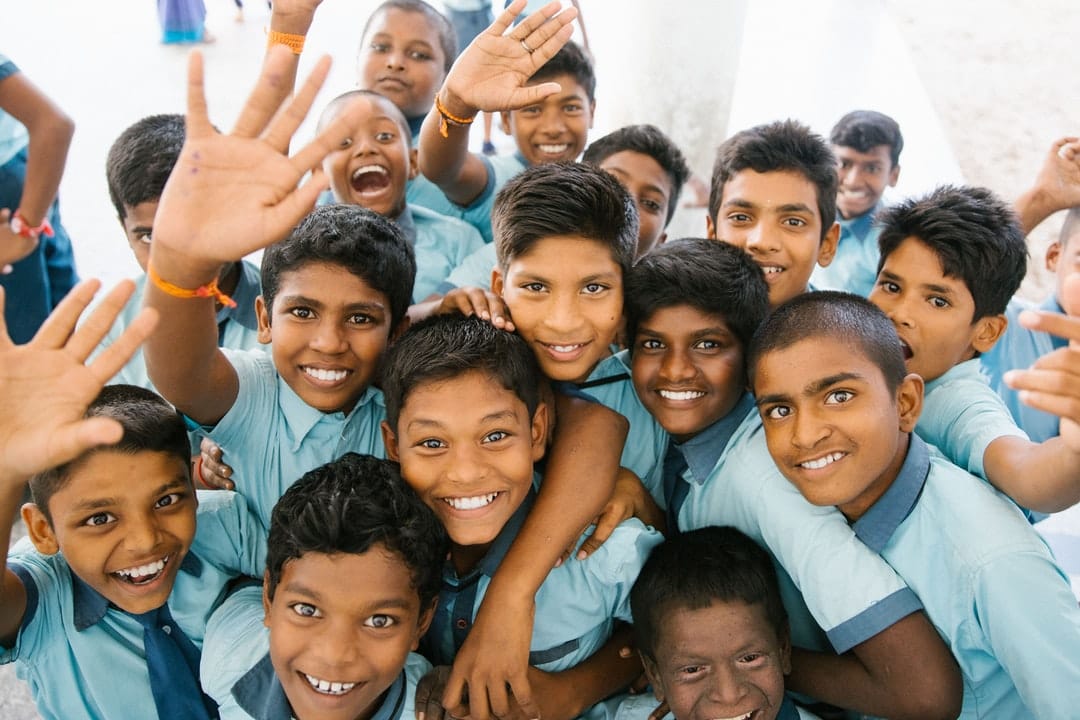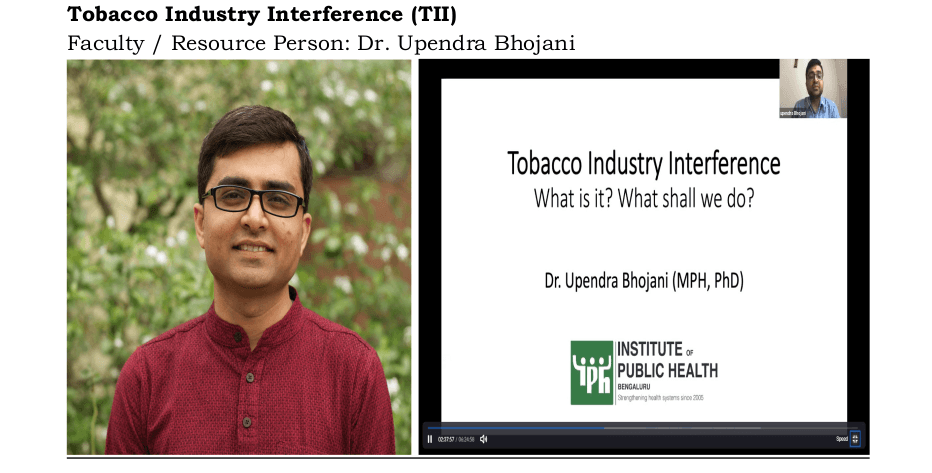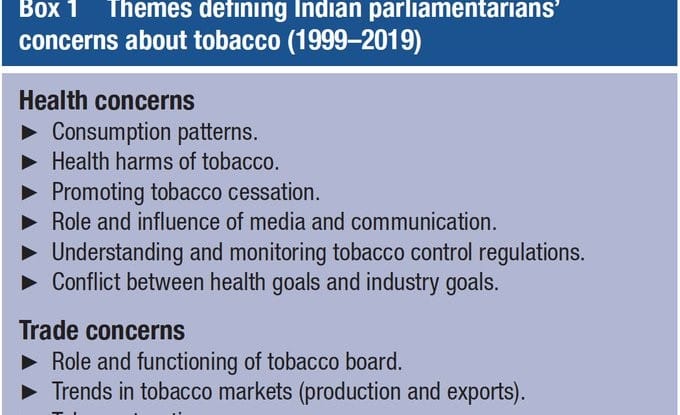Dr. Upendra Bhojani, co-authored a paper in the BMJ Global Health, along with Amiti Varma & Latha Chilgod of the Institute of Public Health, Bengaluru. This is the first peer-reviewed paper from the DEEP project titled “Diverse and competing interests around tobacco: qualitative analysis of two decades of parliamentary questions in India”. The paper analysed 1315 tobacco-related questions asked by 729 MPs over the two decades (1999-2019).
MPs had concerns about health (consumption patterns; harms; cessation; regulations); trade (production & export; Tobacco Board of India; market growth); agriculture (support for farmers); labour (working conditions; alternative livelihoods; impacts of regulations). The nature of concerns changed over time with health becoming a dominant concern. Other issues like trade took somewhat of a back seat, possibly due to a growing awareness on health harms and incremental tobacco control regulations.
Livelihood and economy-related concerns persisted throughout. The number of MPs asking tobacco-related questions varied widely across states. States, from where maximum MPs asked questions (Andhra Pradesh; Maharashtra; Uttar Pradesh; Karnataka; Tamil Nadu in that order) are the states with a greater presence of tobacco industry.
Key takeaways: (1) parliamentary questions, that remain underutilized in health policy research, could be a useful resource; (2) tobacco evokes diverse & competing interests implying a need for careful mediation and consultative approach to policy making for public health gains; (3) In India, state-level (economic, political, historical, cultural) contexts are crucial in understanding the political economy of tobacco and formulating tobacco control regulations; (4) identifying key concerns help public health folks engage with diverse political voices when tobacco control reforms are planned/executed enhancing political support across sectors and constituencies for tobacco control.
We would like to thank DBT/ WT India Alliance for their support. The paper can be accessed here.














